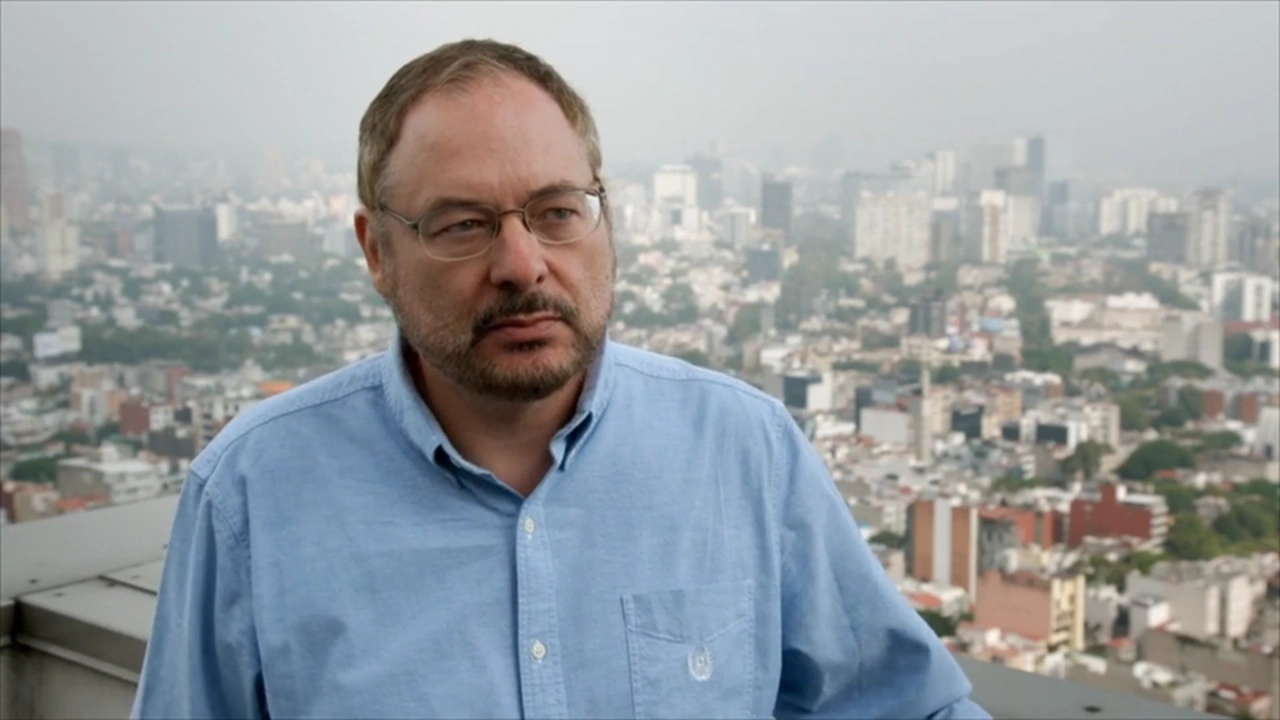China Is in the Good Part of the Historical Cycle
Q7
The China Academy: In your view, where does China currently stand in the cycles of political integration and disintegration, especially given the endless predictions of China’s collapse by Western scholars?
Peter Turchin: First of all, in order for me to speak authoritatively, my group would need to analyze a lot of data.
However, we have done this for the previous cycle in Chinese history—the Qing Dynasty. We have a paper where we showed what happened, specifically focusing on the crisis of the Taiping Rebellion.

Starting with the Taiping Rebellion and ending with the fall of the dynasty and the Chinese Revolution, this period fits the theory very well. During this time, there was widespread popular immiseration, elite overproduction, and resulting state weakness. We can speak confidently about that period.
But what happened after that? And what is happening now? China experienced a 100-year disintegrative period, starting with the Taiping Rebellion and ending with the victory of the Communist Party in 1949.
After 1949, China entered an integrative period. There were some aftershocks, such as the Cultural Revolution, but with the reforms introduced by Deng Xiaoping, China firmly entered the integrative period. Typically, integrative periods last for about a century. Based on this, one might conclude that China still has time to resolve its issues.
However, there are some problems, even without doing a deep dive into data. Based on what I’ve read and from speaking to people during my visit to China in December, I see a real issue with the overproduction of degree holders. The jobless rate for these individuals is high, and many are taking positions unrelated to their training. This creates a lot of discontent.
This issue is partly similar to challenges faced by other East Asian countries like South Korea and Japan. It stems, in part, from Confucian philosophy, which pushes parents to encourage their children to pursue higher and higher education. While this is a good individual strategy, it can have negative societal impacts.

But there are other factors that counteract this issue. For instance, while everyone is worried about China’s low birth rate, from the perspective of political stability, this can actually work in China’s favor.
Revolutions are typically driven by young people in their 20s and 30s, as they are more reckless and willing to take risks. These young people act as “revolutionary troops,” even if they are not the leaders. This phenomenon is called the “youth bulge.” When there is a large cohort of people in their 20s, it creates the potential for discontent to escalate into violence, as seen during the Arab Spring.
 The Arab Spring
The Arab Spring
In China, however, the “youth bust” is reducing the number of young people. This has two effects. First, it decreases the supply of revolutionary troops in the long run. Second, as the number of workers declines, market forces will push wages higher because businesses will compete for a smaller labor pool. This will prevent the “wealth pump” effect from operating as strongly.
Another factor is the nature of China’s ruling system. Unlike the United States, which is a plutocracy (rule by the wealthy), China’s ruling class is essentially made up of mandarins. In many ways, China has reverted to its traditional governance structure, which has been in place for over 2,000 years. While the ruling party is called the Communist Party, it could just as easily be called the Confucianist Party.
One key issue is fiscal capital. If fiscal capital becomes too powerful, it can be corrosive, as it doesn’t produce much and is largely parasitic. By controlling billionaires, as the current administration in China is doing, the government is addressing one potential source of instability.
Q8
The China Academy: From the current state of society, it seems that the “wannabe elites” in China might choose to “lie flat” (i.e., give up striving). By contrast, in the U.S., frustrated wannabe elites are more likely to express anger. What is your view on this?
Peter Turchin: I don’t think so. Let’s look at Chinese history again—take the Taiping Rebellion, for example. It was an extremely violent rebellion. China has a long history of peasant uprisings.
If you examine Chinese history, even just within the last century, you see the civil war between Chiang Kai-shek’s Nationalists and Mao Zedong’s Communists—it was incredibly violent. Then, during the Cultural Revolution, young people in China were also extremely violent.
 Chinese Civil War
Chinese Civil War
I believe that this is fundamentally human nature. It’s not unique to China or America—it’s just human nature. When the conditions in a country become strong enough to push it into instability, then civil war or revolution will occur. It’s all about the conditions. However, I don’t see those conditions currently operating in China.
Q9
The China Academy: Have you observed the societal conditions in Japan?
Peter Turchin: Yes, one of my colleagues has studied Japan. First of all, immiseration in Japan is very serious, although it’s not often reported.
Over the past 20 years, real wages in Japan have declined by about 20–25%, which is astonishing. The economy hasn’t grown much, but wages have declined even more sharply. As a result, a “wealth pump” is at work, creating a growing number of wealthy individuals. However, the political system in Japan is extremely corrupt, and much of this wealth is used to maintain politicians in power.
Immiseration in Japan is so bad that the average height of the population is actually declining. I saw the data myself, and I could hardly believe it. There’s a lot of underlying discontent. For example, one of Japan’s prime ministers was recently assassinated—a clear sign of instability just beneath the surface.
At the same time, Japan is also experiencing a “baby bust.” The majority of the population is now elderly, and they are not likely to revolt due to the absence of a “youth bulge.” It’s possible that Japan won’t experience a civil war or revolution, but conditions will likely continue to deteriorate. Things may simply get worse and worse until something unpredictable happens. Japan is definitely in a crisis mode at this point, unlike China.
Q10
The China Academy: In your research on ancient China, you’ve highlighted characteristics of Chinese society such as its capacity for collective action, centralized governance, and strong internal cohesion. Could these traits explain China’s rise over the past 4–5 decades?
Peter Turchin: Absolutely. I’ve written another book, Ultrasociety, which explains this theory. Essentially, societies that evolve on steppe frontiers, like China on the frontier between China and Mongolia, experience intense interaction with external threats. These threats drive societies to become more cohesive internally and more cooperative.

This phenomenon isn’t unique to China. The same thing happened in Russia and even the United States, which had its own frontier.
The result of such conditions is the evolution of institutions that are conducive to centralization and the coordination of large populations. Confucianism, for example, is one of these institutions. It’s a creed that promotes internal cohesion.
Additionally, China’s administrative elites dominate the system, unlike in the United States, where economic elites hold the most power. This difference is also a result of China’s cultural “genome,” so to speak.
If I were making predictions in 1950, I would have confidently predicted that China would rise again. Institutions like these take a long time to dissipate, and that dissipation was not happening in China. Therefore, I would have confidently predicted that China would eventually become a preeminent power.
Q11
The China Academy: Do you think that the governance institutions of China—centralized and bureaucratic, with meritocracy as some describe—are a uniquely distinguishing trait of the Chinese state?
Peter Turchin: No, it’s not unique to China. For example, if you look at France, it has also been a bureaucratically ruled country. Although this is changing now, if you examine France from around 1870 to 2000—during the Third, Fourth, and Fifth Republics—the elites were recruited through a system very similar to China’s.
In France, the system was based on educational credentials. There are a set of elite schools called the grandes écoles. If you wanted to enter government, you went to a school for public administration. If you wanted to lead a major company, you attended a different grande école. Most of the largest French companies were state-owned enterprises, so the system was similar to China’s in many ways. It produced a very similar class of elites, or “mandarins.”
This system remained highly effective until the last 10–15 years, when it started to break down. But up until that point, it was a very functional system.
Q12
The China Academy: The U.S.-China rivalry is very intense. In your view, would the U.S. strategy of containing China further strengthen China’s internal cohesion? I recall you mentioned that Russia became more internally unified during the Ukraine war.
Peter Turchin: Yes, this is a pattern that many American leaders fail to understand. Containment strategies often create feedback loops, strengthening internal cohesion within the targeted country.
That said, interstate competition—so long as it does not escalate into violent conflict—is actually beneficial. Competition in economic, ideological, and cultural spheres can be good for all parties involved. It helps counteract the “iron law of oligarchy,” which holds that elites, when left unchecked, tend to become selfish and drive their countries into decline.
For example, the Soviet Union did not lose a “hard war” against the United States. Instead, people became dissatisfied with how the country was being governed, which led to its collapse. Interstate competition helps to prevent such stagnation.
 Stagnation in the Soviet Union
Stagnation in the Soviet Union
Looking forward, I hope we continue to see interstate competition, even if it takes extreme forms like tariffs or trade restrictions, as long as it doesn’t lead to violence. Such competition benefits everyone. For instance, the United States has imposed numerous restrictions on China, and China is finding ways to overcome them. Similarly, Russia, despite being the most sanctioned country in history, has managed to grow economically during the war, while Germany is now in decline.
Of course, the Ukraine war is a tragedy—it has already killed hundreds of thousands of people. But competition without war would be good for everyone.
Q13
The China Academy: Some people believe that the Chinese Communist Party (CCP) has broken free from the historic cycles of rise and fall in Chinese history. What’s your view on this?
Peter Turchin: So far, I see Chinese history continuing to follow the dynastic cycle. Right now, we are in the “good” part of the cycle. There may not be an emperor, but power is still being transferred—just in different ways, not from father to son. Otherwise, the system is very similar to the traditional dynastic cycles.
Whether the Chinese leadership will be able to break this cycle depends on two things. First, advancements in our understanding of societal dynamics—what I call “cliodynamics.” Second, whether government officials take this knowledge into account and use it to prevent a slide into crisis.
This is one of the reasons for my work—I want us to break free from these cycles. China certainly has time to do this because I don’t see a revolution happening anytime soon. There is time to understand the causes of instability and take action.
China can implement policies that are impossible in Western liberal democracies. One possibility is limiting the number of university places and encouraging more people to pursue vocational training or skilled trades, such as operating machinery. This could help address the overproduction of degree holders. Of course, I hope people won’t hate me for suggesting this.
Q14
The China Academy: Many Chinese people are now worried about AI. They fear that the development of AI could lead to widespread unemployment and further overproduction of elites. What should human society do in response? Is there a way to achieve a fair distribution system?
Peter Turchin: Yes, that’s one of the most important things—to make sure that AI, which will be very powerful, benefits society as a whole. The benefits of AI technology must not end up concentrated in the hands of a small elite. Instead, they need to be shared broadly across the population.
Q15
The China Academy: And finally, what factors do you think are truly concerning for China’s future?
Peter Turchin: I think controlling the overproduction of youth with advanced degrees is the most important long-term issue for China.
China does have other problems, such as the real estate bubble. However, I don’t think this will cause irreparable damage. It just means that people who bought second or third apartments will become poorer—they already have, since property prices have dropped. But this situation can be resolved without undermining the overall capacity of society.
Another key factor is avoiding getting into a hard war, especially over Taiwan. From what I perceive, Chinese leadership really does not want a war, and I think that’s a good strategy.
In principle, I’m actually very optimistic about China—much more so than many other parts of the world. That said, take my optimism with a grain of salt, as I would need to conduct much deeper analysis to make definitive statements of this kind.
Editor: huyueyue




Anonymous
Intriguing analysis.